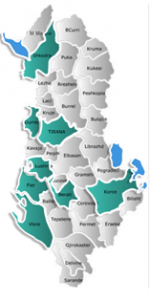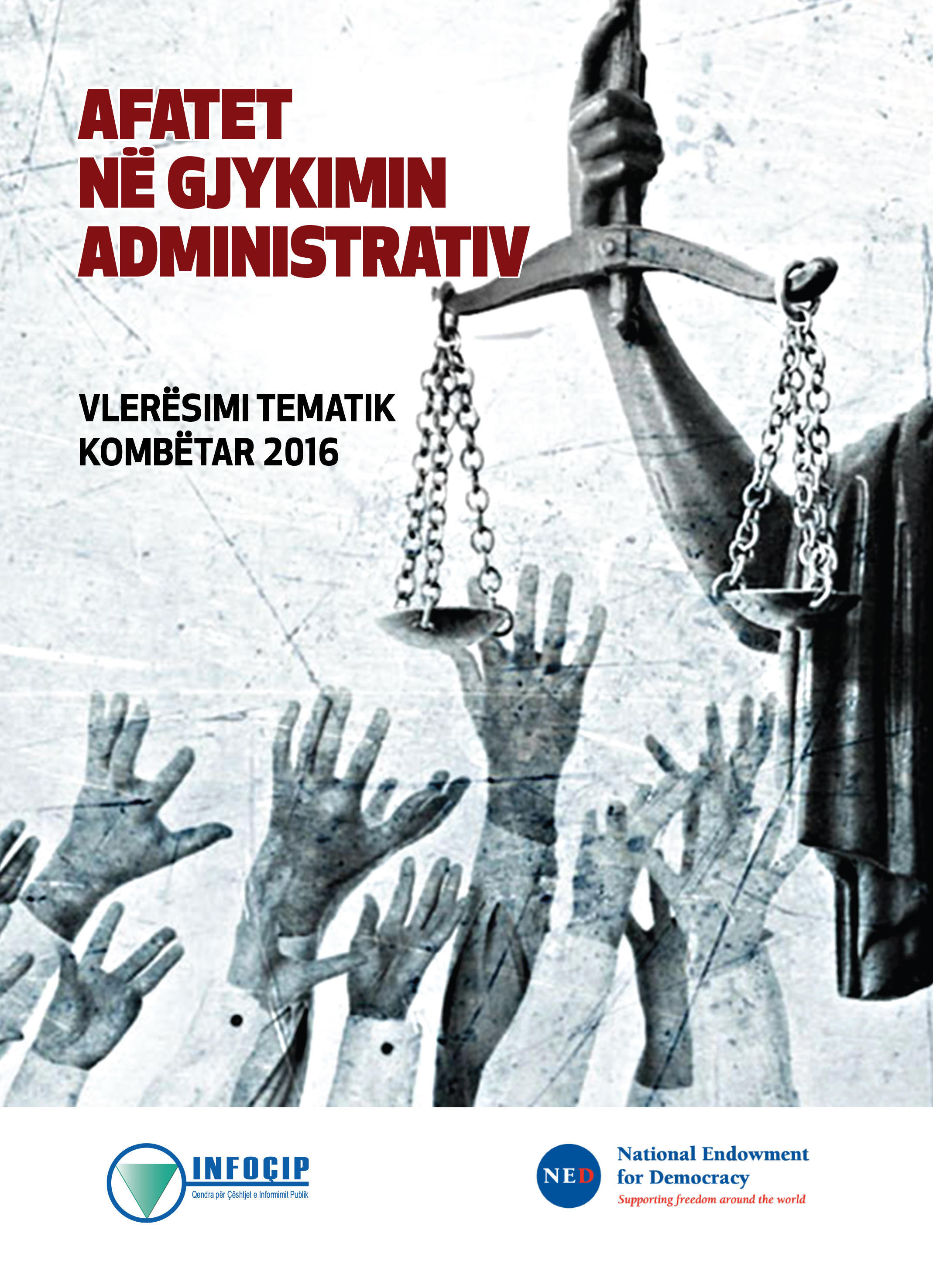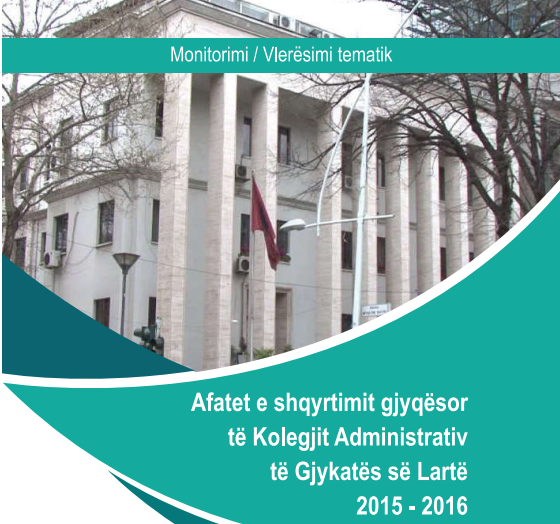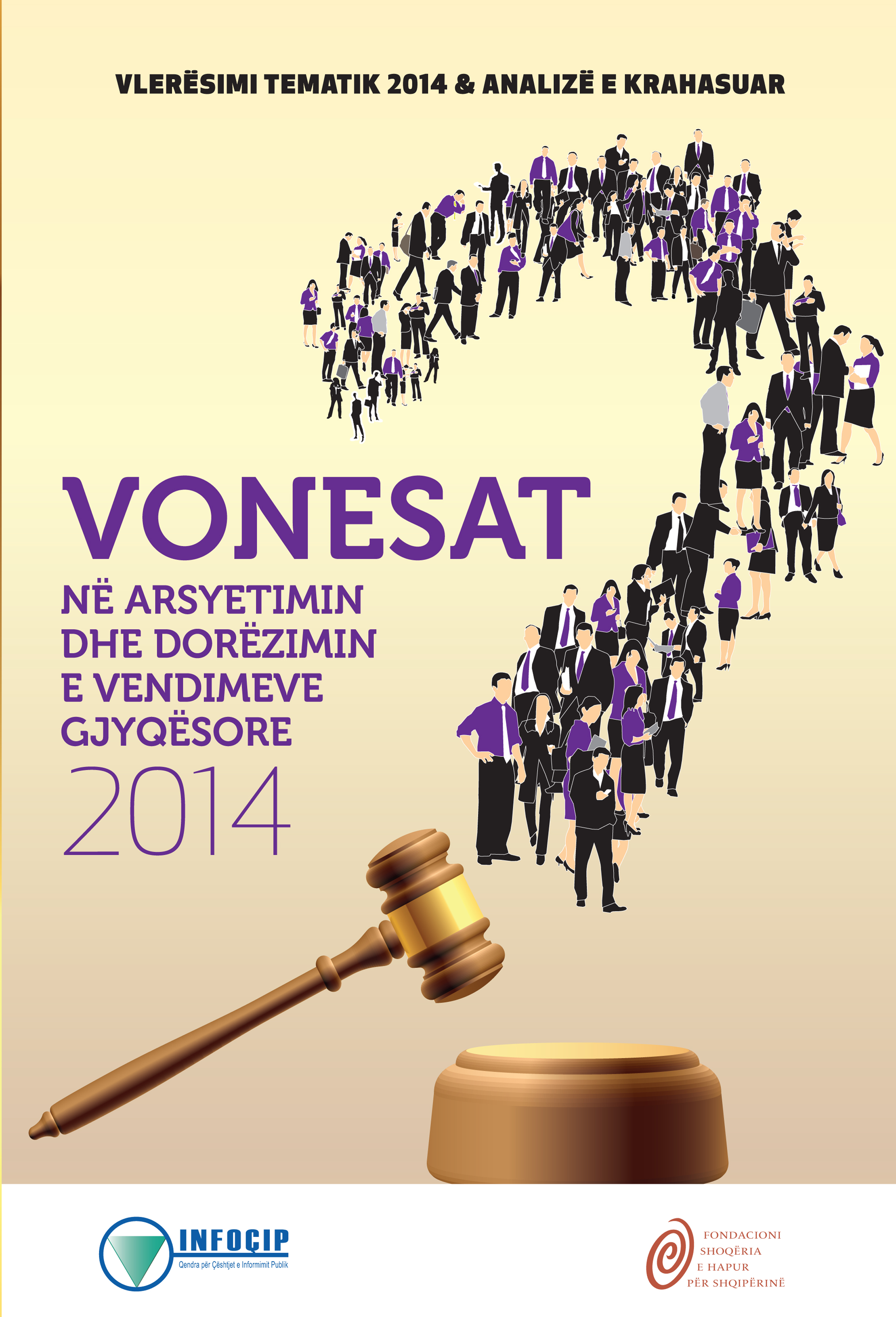15 million EURO in damages in 2018 and 2017. “Labor Rights and Protection in Court”, INFOCIP Announces National Monitoring Findings
The state is the largest employer in the Republic of Albania, with about 110,000 budget employees. The state has the burden of proof in administrative judgment. The 2016 legislative changes violated this important principle, restoring the judicial conflict between the state and its employees in civil court. Since last year, only employees who enjoy the status of civil servants can appeal to the administrative court.

To understand the extent to which administrative courts have been effective in protecting employment rights, INFOCIP analyzed all final decisions of the Administrative Court of Appeal in 2018 and 2017, which concern cases registered from 2014 to 2016. INFOCIP has also evaluated all recourses dealing with “employment relations” in the Supreme Court, decided in 2015, 2016 and 2017.
This study shows that an employee who lost his job in the state waited 840 days (2.3 years) on court doors to find justice at both stages of the trial. If the recourse to recourse to the Supreme Court is added at this time, the average wait is 1730 days or about 4.7 years. These data represent the average of the last two years as measured by INFOCIP.
The optimum, but also the legal time within which an administrative dispute must be resolved before the Appeal must not exceed 90 days, in order for the damage to be restored “in nature” ie return to the workplace and not to cause harm budget for the state budget in the form of salary compensation. Such a time makes it possible to reach the deadlines prescribed by the Code of Administrative Procedures for the return of plaintiffs to work through the execution of their court decision before a new definitive employment contract is concluded with the substitute for the same job.
According to INFOCIP, there are only two ways to bring back these indicators in the deadline: Either the State takes measures not to produce so much judicial conflict that goes through the courts, or the courts are filled with new judicial bodies.
In 2018, the Administrative Court of Appeals issued a total of 4743 decisions on foundation issues. Of these, 1400, or 29.5% of the total, were subject to labor relations.
In 2017, the GJAA issued 5546 decisions on foundation issues. Of these, 1601 or 30% of the total were subject to labor relations
In the two years surveyed by INFOCIP taken together, it turns out that 77% of complainants won their legal cases for unfair dismissal. This important data suggests that administrative courts have functioned as the only real guarantor of labor rights in the Republic of Albania.
If the enacting clause is reversed, it turns out that there are a total of 10625 salaries that the state will have to pay in the form of compensation to persons who won court cases against him in 2018 in Administrative Appeal. Meanwhile there are 19003 salaries to be paid in compensation to those who won the trials in 2017. According to INSTAT, the average salary in the public sector by the end of 2017 was 493 Euro. According to this official conjuncture, for the approximately 30,000 salaries to be paid over the last two years, the total bill to be paid by the State is approximately 15 million euros. This data will be reflected in the budget for 2019, 2020 and 2021.
The analysis shows that the Supreme Court recovers about 6% of the total cases decided on Appeal. Specifically, in 2017 the LJL reviewed 91 recourses dealing with labor relations. Even if these recourses overturn all decisions of the preceding degree, they have negligible impact on the economic damage to be paid by the State in the years to come.
Data on issues related to “employment relations” are already fully recorded and are accessible on the www.gjykataehapur.al Platform. Everyone can make the necessary checks independently by opening the respective tabs for each lost or won trial.
Meanwhile, the Administrative Appeal has not yet reached the issues of 2017, which was an election year. During the rule of technical ministers, about 600 layoffs were reported before the elections took place. After the elections, the administration moves again. Based on these data, in 2019 it is expected again to have a new invoice that can add with 5-7 million euro burden to the state budget, a burden that Albanian taxpayers must pay.
INFOCIP considers that the time has come to consider new legal provisions on public official’s liability for non-contractual damage to the State. There are times when a new director can make 100 dismissals in one day. Collective dismissals are in themselves bad news. The departed, in breach of procedural requirements and notice deadlines, then find the right to court by producing liabilities that are 100% payable to taxpayers.

Likewise, if the adjudication of these lawsuits were to take place quickly, INFOCIP believes that the economic damage would be significantly reduced, as the employee would have a real opportunity to return to the workplace by executing a final court decision without the need to the state to pay two salaries for the same job, and in some cases three.
The study presented by INFOCIP highlights the guaranteeing role of administrative courts in terms of employment rights. Unfortunately, there is still no basic study on the role of civil courts in this regard. These courts examine the conflict of labor produced in the private sector. We are working to expose the real situation in these courts and we hope that our partners, the Swedish government in particular, will provide us with the support we have sought to fulfill this mission.
In the private sector, employment measures are even more socially and economically vulnerable. They are employees of the Fason, Mining, Petroleum sector and beyond, deserving of increased access to the courts, directly or through unions, to provide legal and not only union rights infringement. work.
LAST RELEASED PUBLICATION
MONITORING REPORT
Recent reports/studies
Partners / Donors
Local Branches
- Citizens' Transparency Office, Durrës (19)
- Citizens' Transparency Office, Korça (9)
- Election Situation Chamber (11)
- JUDICIARY (1)
- NED (11)
- www.vendime.al (5)
Foto lajm

- CPII anounces the monitoring result for Durres Municipal Council. It must be re-elected
Where we work














